Papers by Itzel Toledo García
México en el espacio germanoparlante, 1910-1945. Facetas de una representación, 2024
En este capítulo exploramos la forma en que fue representado el México posrevolucionario, y en es... more En este capítulo exploramos la forma en que fue representado el México posrevolucionario, y en especial la población mexicana, en la obra del empresario mediático alemán Carl Düms y del periodista suizo Karl von Schumacher.
Ficha: José Enrique Covarrubias e Itzel Toledo García, "La población en México según la mirada de Carl Düms y Karl von Schumacher" en Emma Julieta Barreiro y Bernd Hausberger (coords.), México en el espacio germanoparlante, 1910-1945. Facetas de una representación, México, El Colegio de México, 2024, pp. 83-107.
Mujeres y relaciones internacionales en el siglo XX: historia y presencia en un mundo en transición, 2024
La modernización porfiriana vista por los viajeros, 2023
Relaciones Estudios de Historia y Sociedad, 2023
Los gobiernos posrevolucionarios mexicano y alemán mantuvieron un lazo político amigabl... more Los gobiernos posrevolucionarios mexicano y alemán mantuvieron un lazo político amigable a lo largo de los años veinte; además, realizaron esfuerzos importantes para mejorar la conexión económica y para lograr un acercamiento cultural. Aunado a ello, ambos gobiernos consideraron importante tener una relación mediática estable y, para lograrlo, fue fundamental la labor de la Agencia Duems como órgano de noticias. Este artículo explora el trabajo realizado por dicha agencia para mostrar una imagen positiva sobre el México posrevolucionario y la República de Weimar, tanto en la prensa alemana como en la mexicana, y al mismo tiempo asegurar una relación fructífera entre ambas naciones.
Diplomatica, 2023
This article analyzes the diplomatic career of Palma Guillén, the first woman to represent Mexico... more This article analyzes the diplomatic career of Palma Guillén, the first woman to represent Mexico in high-ranking diplomatic positions during the interwar period. Guillén was Envoy Extraordinary and Minister Plenipotentiary in Bogota, Colombia (1935-36) and Copenhagen, Denmark (1936-37), and Technical Advisor to the Mexican Delegation at the League of Nations in Geneva, Switzerland (1938-41). The article aims to elucidate the activities she undertook and the issues she focused on, as well as to compare her experience dealing with governments, the press and diplomatic peers to that of other female diplomats and consuls from Europe and the Americas during the interwar period.
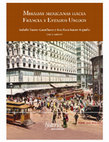
Miradas mexicanas hacia Francia y Estados Unidos, 2022
Este capítulo ofrece una comparación de la forma en que el presidente electo Plutarco Elías Calle... more Este capítulo ofrece una comparación de la forma en que el presidente electo Plutarco Elías Calles Calles entendió lo alemán y lo francés en su viaje por Alemania y Francia de agosto a octubre de 1924. El objetivo de Calles era realizar estudios sobre las condiciones sociales, los programas y las reformas en materia laboral, agrícola y educativa que podrían ser útiles ejemplos para su periodo presidencial (1924-1928). Calles visitó museos, monumentos, centros de investigación científica, hospitales y puertos; aunado a ello tuvo reuniones con importantes figuras públicas de los sectores político, económico, académico y obrero, y estuvo en contacto con la prensa. Los encuentros permitieron una presencia mediática de Calles y el proyecto revolucionario mexicano en la prensa alemana y francesa que llamaron a continuar estrechando los lazos diplomáticos, económicos y culturales. Además, el presidente electo se posicionó frente a los gobiernos y pueblos alemán y francés en las entrevistas que ofreció a periodistas, por ejemplo envió palabras de fraternidad hacia los obreros de ambos países y mencionó su admiración por las letras francesas y la inteligencia alemana. Igualmente, en estas entrevistas posicionó el proyecto de la Revolución mexicana en términos internacionales: una democracia alejada del bolchevismo, cercana a proyectos socialdemócratas.
Estudios de Historia Moderna y Contemporánea de México, 2022
Este artículo analiza la historiografía de la actividad diplomática mexicana en la Sociedad de Na... more Este artículo analiza la historiografía de la actividad diplomática mexicana en la Sociedad de Naciones (SDN). Se presenta un recuento de los estudios de tres cuestiones: la exclusión e ingreso de México a la SDN de 1919 a 1931, su paulatina colaboración con los organismos técnicos en los años veinte y su activa participación frente a problemas internacionales de los años treinta como invasiones y conflictos bélicos. Mientras que en el siglo XX se prestó poca atención a estas cuestiones, este artículo muestra que en el siglo XXI ha surgido un cuerpo sólido de estudios especializados sobre el posicionamiento mexicano frente a problemas internacionales, principalmente respecto a la defensa de la República Española.
Journeys, 2021
This article aims to explore British traveler James Bryce’s political analysis of the Porfirian r... more This article aims to explore British traveler James Bryce’s political analysis of the Porfirian regime. In October 1901, Bryce visited Mexico and wrote letters to his family portraying his stay. Afterward, based upon his travel account, he spoke about the country in two conferences, one time in Oxford (1902) and another in Aberdeen (1903). Later on, he wrote about Mexico in his book South America: Observations and Impressions (1912), which was the result of his travels through Latin America in 1901 and 1910. We shall explore Bryce’s position toward the Porfirian regime, from disinterest in Porfirio Díaz’s despotism and the political elite in 1901 to admiration of its achievement of peace and progress in 1911 once the Mexican Revolution had commenced.

Revista de Historia de América, 2021
Este artículo se enfoca en la lectura de América Latina realizada por pensadores internacionales ... more Este artículo se enfoca en la lectura de América Latina realizada por pensadores internacionales británicos en las primeras dos décadas del siglo XX. Dichos pensadores remarcaban una distinción entre los países “avanzados” y “atrasados” para explicar cuáles debían decidir cómo mandar sobre el mundo en términos económicos, políticos y culturales. A través de este trabajo se discutirá la ausencia de referencias a la región latinoamericana en Reino Unido en el momento que se asentaban las bases para la disciplina de Relaciones Internacionales. Se observará que en los debates no se consideró el papel que América Latina podría jugar en un nuevo orden internacional una vez terminada la Gran Guerra. Ello contrasta con el hecho de que la región representó un tercio de los miembros de la Sociedad de Naciones. Se prestará especial atención a la lectura que hizo el historiador mundial, pensador internacional y político liberal James Bryce en su obra South America: Observations and Impressions (1912) sobre Latinoamérica.

Terrae Incognitae, 2020
James Bryce is recognized as a traveler, historian, lawyer, politician, diplomat , and Internatio... more James Bryce is recognized as a traveler, historian, lawyer, politician, diplomat , and International Relations scholar, who led to an improvement in British-American relations, the understanding of modern democracies, and the establishment of the League of Nations. However, until recent times his portrayal of Latin America has been overlooked by historiography. This article aims to explore his analysis of the region as a historian and thinker of the international, especially in his book South America: Observations and Impressions (1912). In this book, among questions of history, nation, and race, the author wrote about the relations of Latin American nations within them and with regard to the United States and Europe, which shall be explored. These questions were also studied by early Latin Americanists in the first three decades of the twentieth century. KEYWORDS travel writing; international relations; Latin American Studies; international theorist; world history; inter-American relations James Bryce est connu comme un voyageur, historien, avocat, homme de politique, diplomate et spécialiste en Relations Internationales qui a mené à une amélioration des relations entre le Royaume-Uni et les États-Unis, la compréhension des démocraties modernes, et la fondation de la Société des Nations. Cependant, jusqu'à récemment sa représentation de l'Amérique Latine reste négligée par l'historiographie. Cet article a l'intention d'explorer son analyse de cette région en tant qu'historien et spécialiste de l'international, surtout dans son livre South America: Observations and Impressions (1912). Dans ce livre, entre les questions d'histoire, de nation, et de race, l'écrivain a écrit sur les relations des nations de l'Amérique Latine entre elles et aussi en ce qui concerne les États-Unis et l'Europe, qui seront explorées. Ces questions ont aussi été

Estudios de Historia Moderna y Contemporánea de México, 2019
Resumen. Este texto presenta la traducción de las cartas que envió Marion Bryce a su madre, la se... more Resumen. Este texto presenta la traducción de las cartas que envió Marion Bryce a su madre, la señora Ashton, en octubre de 1901 mientras realizaba una visita a México con su esposo, el acadé-mico y miembro liberal del parlamento británico James Bryce. La estancia de Marion en México no ha sido de interés para los especialistas en la literatura de viajeros británicos, pero vale la pena recuperarla porque nos permite conocer más sobre la vida política, económica, social y cotidiana durante el Porfiriato. Palabras clave: mujeres viajeras, relaciones anglo-mexicanas, literatura de viajes, Porfiriato.
Abstract. This text presents the translation of letters written by Marion Bryce to her mother, Mrs. Ashton, in October 1901 while she was in Mexico with her husband, the British academic and liberal James Bryce, mp. Marion's stay in Mexico has not been of interest for specialists on British travel writing but is worth of recovery as it allows us to know more about the political, economic, social and daily life during the Porfirian regime .
Studies in Travel Writing, 2019
This article reconstructs and analyses James and Marion Bryce’s visit to Mexico in 1901. It eluci... more This article reconstructs and analyses James and Marion Bryce’s visit to Mexico in 1901. It elucidates and compares their reading of the country during the Porfirian regime (1876–1911), with the aim of recovering the Bryces as among those British travellers who visited Mexico in the first century of its independent life (1821– 1920). The article examines how the Bryces viewed and wrote about modernisation, scenery, social classes, local people, and the role played by foreigners.
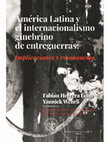
América Latina y el internacionalismo ginebrino de entreguerras: Implicaciones y resonancias, 2019
En la Conferencia de Paz de París (1919) se estableció el Pacto de la Sociedad de Naciones, y, de... more En la Conferencia de Paz de París (1919) se estableció el Pacto de la Sociedad de Naciones, y, debido a la falta de reconocimiento diplomático por las potencias mundiales, se decidió no incluirlos como miembros invitados a ciertos Estados o gobiernos. A su vez, el Pacto consideró que los países y las colonias no invitadas podían solicitar su ingreso a la Sociedad de Naciones (SDN) si cumplían ciertas condiciones, las cuales nos remiten a las formas en que las potencias a veces condicionaban el reconocimiento diplomático a gobiernos: cumplir con compromisos internacionales y adherirse a ciertas prácticas de derecho internacional. En este capítulo revisaremos cuál fue la posición de la SDN respecto de la cuestión del reconocimiento a gobiernos, enfocándonos en el caso de los gobiernos revolucionarios mexicanos. En 1919, por falta del reconocimiento británico al gobierno de Venustiano Carranza, México no fue invitado a formar parte de la Sociedad; dicho reconocimiento lo obtuvo en 1925 el gobierno de Plutarco Elías Calles, y desde entonces ocurrió un mayor acercamiento a Ginebra, obteniendo una invitación e ingresando en 1931.
Boletín del Archivo General de la Nación , 2019
Una vez que Álvaro Obregón obtuvo el reconocimiento diplomático de jure por parte del gobierno fr... more Una vez que Álvaro Obregón obtuvo el reconocimiento diplomático de jure por parte del gobierno francés en septiembre de 1923, la relación entre México y Francia se estabilizó y hubo un acercamiento cultural gracias a la importante labor de Alfonso Reyes en París y la de Genaro Estrada y Jean Périer en la Ciudad de México. De 1924 a 1928 estos personajes promovieron el acercamiento entre artistas, escritores y académicos, logrando la visita de intelectuales franceses a la Ciudad de México y de mexicanos a París, es decir, un intercambio activo de ideas y conocimiento entre ambos países. A través de la revisión de correspondencia diplomática entre estos actores, exploraremos la aplicación de una diplomacia cultural por parte de México y Francia.

Historia Mexicana, 2017
Por medio del estudio de la correspondencia diplomática este artículo analiza el restablecimiento... more Por medio del estudio de la correspondencia diplomática este artículo analiza el restablecimiento de las relaciones diplomáticas entre México y Bélgica (1879) y los distintos acercamientos entre ambos gobiernos, los cuales tenían el objetivo de instaurar un marco jurídico para guiar los lazos políticos, comerciales y marítimos que llevaron a la firma del tratado de Amistad, Comercio y Navegación (1895). La reanudación diplomática y la institucionalización de los lazos permiten ver cómo las naciones se adhirieron a las prácticas internacionales estandarizadas una vez que las Américas se insertaron en el marco de las relaciones regidas por las potencias occidentales. Así, para cada nación, la relación tuvo un significado diferente. Para México, era importante defender la vigencia de la doctrina juarista, así como el establecimiento de una fuerte política comercial porfirista, que tenía el fin de encontrar un balance económico entre las potencias extranjeras. Para Bélgica era necesario fortalecer mercados en el extranjero para ser vista como una potencia al nivel de los poderes imperiales del periodo.
Tzintzun. Revista de Estudios Históricos, 2017
Este artículo presenta documentos depositados en los Archivos Diplomáticos del Ministerio de Nego... more Este artículo presenta documentos depositados en los Archivos Diplomáticos del Ministerio de Negocios Extranjeros Francés en La Courneuve (París, Francia) que se refieren a la labor de propaganda alemana en México a través de la Agencia Duems de 1920 a 1924. Estas fuentes son útiles para explorar la competencia entre Francia y Alemania por un lugar relevante en la prensa mexicana mientras se resolvía la cuestión del reconocimiento diplomático de jure al gobierno de Álvaro Obregón.
Conference Proceedings by Itzel Toledo García
El propósito de esta ponencia es analizar los factores que determinaron el tardío ingreso de Méxi... more El propósito de esta ponencia es analizar los factores que determinaron el tardío ingreso de México a la Sociedad de Naciones (SDN) entre 1919 y 1931: la cuestión de la dignidad nacional y el rechazo al artículo 21 del Pacto de la Sociedad que reconocía la doctrina Monroe. Otro factor, si bien no tan relevante, fue la falta de reconocimiento británico hasta 1925. Estudiar estos factores permite entender la política exterior de México durante los años veinte, misma que pasó de una actitud estática a una pragmática.
Posters by Itzel Toledo García
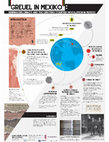
Mexican President Plutarco Elías Calles saw the Weimar Republic project as a parallel with which ... more Mexican President Plutarco Elías Calles saw the Weimar Republic project as a parallel with which the Mexican Revolution shared social values and economic experiences. His visit to Germany in 1924 strengthened the traditional friendship between both countries, which had remained firm even throughout the Great War. Friedrich Ebert celebrated the commonalities of the two projects, establishing an image that underlined how comparable the two regimes were. However, in the background, U.S. media accused Calles of Bolshevism due to his closeness to the labour movement and his position regarding land distribution and subsoil property. The Cristero rebellion (1926-1929) brought a religious element into this discourse, which was much more readily adopted by media in countries such as Germany, Spain, and Italy. This poster will present images from German newspapers and pamphlets that work in support of the Mexican counter-revolutionary Cristero movement, which was opposed to the Calles government’s “Kultukampf”. By analysing these media we will draw connections to perceptions of the Russian and French Revolutions in a volatile context that saw these two historical moments in partially negative terms, particularly when it came to their treatment of religious institutions. While the Cristero War is not commonly understood as a fully formed counter-revolution, the fact that it ended only by negotiations as well as its international appeals – the extent of which is analysed here as both a diplomatic and media-based representational issue – make it a nodal point for a diverse set of revolutions meeting. In this sense, Weimar Germany and Revolutionary Mexico cross paths, since German Catholics pressured their government for a formal complaint against its Mexican counterpart, while the latter requested censorship of Catholic propaganda. This implicates a wide set of primarily religious counter-revolutionary agents acting simultaneously in two different countries under shared historically conservative positions deployed formally in the press and diplomacy and informally in pamphletary activity. It is informally how the more radical aspects of the Catholic opposition manifest, in image series that attempt to illustrate the virtuosity of the rebels and make a caricature out of Calles, a caricature that resembles the anti-Semitic propaganda that would become increasingly common under the later Nazi regime.
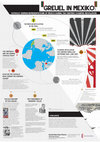
Mexican President Plutarco Elías Calles saw the Weimar Republic project as a parallel with which ... more Mexican President Plutarco Elías Calles saw the Weimar Republic project as a parallel with which the Mexican Revolution shared social values and economic experiences. His visit to Germany in 1924 strengthened the traditional friendship between both countries, which had remained firm even throughout the Great War. Friedrich Ebert celebrated the commonalities of the two projects, establishing an image that underlined how comparable the two regimes were. However, in the background, U.S. media accused Calles of Bolshevism due to his closeness to the labour movement and his position regarding land distribution and subsoil property. The Cristero rebellion (1926-1929) brought a religious element into this discourse, which was much more readily adopted by media in countries such as Germany, Spain, and Italy. This poster will present images from German newspapers and pamphlets that work in support of the Mexican counter-revolutionary Cristero movement, which was opposed to the Calles government’s “Kultukampf”. By analysing these media we will draw connections to perceptions of the Russian and French Revolutions in a volatile context that saw these two historical moments in partially negative terms, particularly when it came to their treatment of religious institutions. While the Cristero War is not commonly understood as a fully formed counter-revolution, the fact that it ended only by negotiations as well as its international appeals – the extent of which is analysed here as both a diplomatic and media-based representational issue – make it a nodal point for a diverse set of revolutions meeting. In this sense, Weimar Germany and Revolutionary Mexico cross paths, since German Catholics pressured their government for a formal complaint against its Mexican counterpart, while the latter requested censorship of Catholic propaganda. This implicates a wide set of primarily religious counter-revolutionary agents acting simultaneously in two different countries under shared historically conservative positions deployed formally in the press and diplomacy and informally in pamphletary activity. It is informally how the more radical aspects of the Catholic opposition manifest, in image series that attempt to illustrate the virtuosity of the rebels and make a caricature out of Calles, a caricature that resembles the anti-Semitic propaganda that would become increasingly common under the later Nazi regime.
Dissertations by Itzel Toledo García
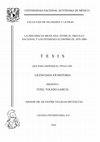
El propósito de esta tesis es presentar el cambio en la diplomacia mexicana durante la primera et... more El propósito de esta tesis es presentar el cambio en la diplomacia mexicana durante la primera etapa del Porfiriato (1876-1884). Ésta dejó de ser tan apegada a los lineamientos de la doctrina juarista por la necesidad de restablecer relaciones con el continente europeo tras la tensión por obtener el reconocimiento estadounidense. Esta tesis presenta los dilemas a los que se enfrentó la Secretaría de Relaciones Exteriores y sus representantes en Europa a la hora de restablecer las relaciones con Bélgica, Francia, los Países Bajos y Gran Bretaña. Asimismo, se presenta la diplomacia comercial de Manuel González, la cual, junto a otras medidas de política económica, permitió al país integrarse al mundo económico en la era de las exportaciones. Durante el gobierno de González se firmó el Tratado de Amistad, Comercio y Navegación con el Imperio Alemán (1882) y se comenzaron negociaciones con los gobiernos de Estados Unidos, Francia, Italia y Bélgica.
Para entender el cambio en la diplomacia mexicana durante esta época, fue necesario analizar la correspondencia diplomática enviada por los representantes mexicanos que se encontraban en Europa. Ellos buscaban mantener el orgullo nacional y asegurar los intereses nacionales a través de un equilibrio de presencia económica entre países europeos y Estados Unidos. México se integró así en un marco comercial más amplio, más allá de la dependencia económica hacia Estados Unidos que se había afianzado durante la República Restaurada (1867-1876).











Uploads
Papers by Itzel Toledo García
Ficha: José Enrique Covarrubias e Itzel Toledo García, "La población en México según la mirada de Carl Düms y Karl von Schumacher" en Emma Julieta Barreiro y Bernd Hausberger (coords.), México en el espacio germanoparlante, 1910-1945. Facetas de una representación, México, El Colegio de México, 2024, pp. 83-107.
Abstract. This text presents the translation of letters written by Marion Bryce to her mother, Mrs. Ashton, in October 1901 while she was in Mexico with her husband, the British academic and liberal James Bryce, mp. Marion's stay in Mexico has not been of interest for specialists on British travel writing but is worth of recovery as it allows us to know more about the political, economic, social and daily life during the Porfirian regime .
Conference Proceedings by Itzel Toledo García
Posters by Itzel Toledo García
Dissertations by Itzel Toledo García
Para entender el cambio en la diplomacia mexicana durante esta época, fue necesario analizar la correspondencia diplomática enviada por los representantes mexicanos que se encontraban en Europa. Ellos buscaban mantener el orgullo nacional y asegurar los intereses nacionales a través de un equilibrio de presencia económica entre países europeos y Estados Unidos. México se integró así en un marco comercial más amplio, más allá de la dependencia económica hacia Estados Unidos que se había afianzado durante la República Restaurada (1867-1876).
Ficha: José Enrique Covarrubias e Itzel Toledo García, "La población en México según la mirada de Carl Düms y Karl von Schumacher" en Emma Julieta Barreiro y Bernd Hausberger (coords.), México en el espacio germanoparlante, 1910-1945. Facetas de una representación, México, El Colegio de México, 2024, pp. 83-107.
Abstract. This text presents the translation of letters written by Marion Bryce to her mother, Mrs. Ashton, in October 1901 while she was in Mexico with her husband, the British academic and liberal James Bryce, mp. Marion's stay in Mexico has not been of interest for specialists on British travel writing but is worth of recovery as it allows us to know more about the political, economic, social and daily life during the Porfirian regime .
Para entender el cambio en la diplomacia mexicana durante esta época, fue necesario analizar la correspondencia diplomática enviada por los representantes mexicanos que se encontraban en Europa. Ellos buscaban mantener el orgullo nacional y asegurar los intereses nacionales a través de un equilibrio de presencia económica entre países europeos y Estados Unidos. México se integró así en un marco comercial más amplio, más allá de la dependencia económica hacia Estados Unidos que se había afianzado durante la República Restaurada (1867-1876).
In order to understand what the progress in all these areas has done I present the difficult negotiations the parties had in order to include the “democratic clause” as part of the agreement and I analyse the press releases of the bilateral discussion held in the biennial Joint Councils, annual Joint Committees, biennial Summits, and biannual Inter-parliamentarian meetings and the Civil Society Forum from 2001 to 2012.
The analysis yields that the meetings have implied a constant monitoring and cooperation to organise and finance joint programmes, conferences and projects (especially the Human Rights Dialogue); but there does not exist a form to assure human rights and diplomatic principles are respected, because the parties have not established a sanctioning system for violations of the “democratic clause”. Instead, the parties talk about the improvements in the democratisation of Mexican politics and the efforts to diminish human rights violations. More than criticising the situation in Mexico (impunity, corruption, etc.), authorities of the European Union have highlighted progress. Moreover, the parties have motivated civil society participation to monitor and make contributions in this relation; nevertheless, they do not accept media, NGOs and deputies pressures to open information regarding the Human Rights Dialogue.
This study is useful to see the collaboration in human rights and democratic principles between Mexico and the European Union; it can be part of a wider analysis of the bilateral cooperation these political entities have in many different areas (economy, education, technology, etc.), but also in the multilateral agenda (for example common decisions in the United Nations or helping third parties in electoral processes)."